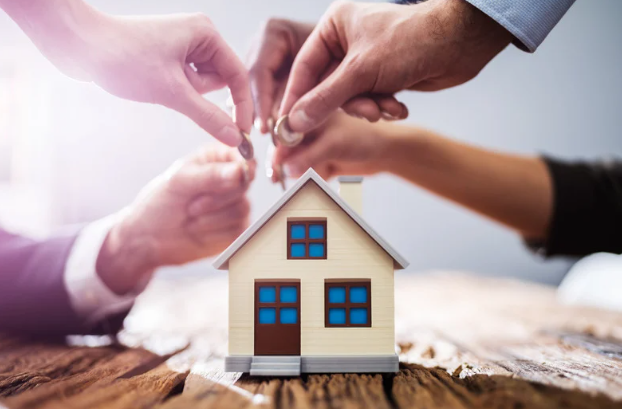

Sustainability Shapes the Future of Lake Real Estate Amid Market Shifts
The lake real estate market is undergoing significant changes as sustainability becomes a key factor in property development and investment. Buyers and developers are increasingly prioritizing eco-friendly designs, energy efficiency, and sustainable building materials.
Regulatory policies are encouraging environmentally responsible practices to preserve natural resources and maintain water quality. Green certifications and energy-efficient homes are gaining popularity among buyers looking for long-term value. These trends highlight the growing demand for sustainable real estate solutions in lakefront communities.
Market trends indicate a shift in buyer preferences toward properties that offer sustainability features alongside traditional luxury amenities. Waterfront homes with solar energy systems, advanced water filtration, and eco-conscious landscaping are becoming more desirable.
The emphasis on sustainability is influencing pricing and demand, with environmentally friendly properties often commanding higher market values. Developers are integrating smart home technology to enhance energy conservation and reduce environmental impact. These innovations are shaping the future of lake real estate investments.
Government regulations are playing a critical role in promoting sustainability in lakefront property development. Zoning laws and environmental protections are guiding responsible construction practices to prevent shoreline erosion and protect aquatic ecosystems.
Incentives for sustainable development, such as tax credits and grants, are encouraging property owners to adopt green initiatives. Compliance with these regulations is essential for maintaining long-term property value and ensuring responsible growth. The intersection of policy and sustainability is redefining the standards for lake real estate.
Economic factors are also driving the shift toward sustainability in the lake real estate market. Rising utility costs and climate concerns are prompting buyers to seek energy-efficient homes that lower long-term expenses. Investors recognize the financial benefits of sustainable properties, as they tend to have higher resale values and lower maintenance costs.
The demand for eco-friendly vacation rentals is increasing, with travelers preferring accommodations that align with environmental responsibility. These economic trends reinforce the importance of sustainability in real estate decision-making.
Recreational and lifestyle considerations remain essential in lakefront real estate, with buyers seeking properties that offer both environmental benefits and high-quality living. Golf course communities and waterfront properties are incorporating sustainable landscaping and water management systems to preserve local ecosystems.
Amenities such as electric boat docks, community gardens, and nature trails are attracting buyers who value outdoor living and environmental conservation. The balance between luxury and sustainability is defining the modern lakefront living experience. Buyers are looking for properties that provide both comfort and a reduced ecological footprint.
Technology is further advancing sustainability in the lake real estate sector. Smart home automation, energy-efficient appliances, and water-saving irrigation systems are becoming standard features in new developments. Builders are utilizing recycled and locally sourced materials to reduce environmental impact while maintaining high construction standards.
Innovations in building design, such as passive solar heating and high-performance insulation, are enhancing energy efficiency. These technological advancements are reshaping how lake properties are built and maintained. The integration of technology ensures long-term sustainability and cost savings for homeowners.
Climate change and environmental conservation are influencing how lakefront properties are developed and managed. Rising water levels and extreme weather events have led to increased investment in resilient infrastructure. Sustainable stormwater management systems and erosion control measures are critical in protecting properties from climate-related risks.
Homebuyers and investors are prioritizing locations that have proactive environmental management strategies in place. This focus on climate resilience is essential for the long-term viability of lake real estate markets. Community engagement and education are supporting the transition to sustainable lakefront living.
Local governments and organizations are promoting initiatives to raise awareness about eco-friendly property maintenance and water conservation. Property owners are encouraged to adopt environmentally responsible practices, such as reducing chemical use in landscaping and maintaining septic systems properly.
Community-wide sustainability efforts are enhancing the appeal of lakefront neighborhoods. These collective actions contribute to the overall health and value of the real estate market. Financing and investment strategies are evolving to support sustainability in lake real estate.
Lenders are offering green mortgages and incentives for energy-efficient home upgrades. Investors are favoring projects that align with sustainability goals, recognizing the long-term benefits of environmentally conscious developments.
Sustainable properties are attracting interest from a diverse range of buyers, including retirees, young families, and vacation homeowners. The financial sector’s support for green real estate is facilitating more responsible development. This alignment between finance and sustainability is driving industry-wide change.
Looking ahead, sustainability will continue to play a central role in shaping the lake real estate market. Buyers, developers, and investors must adapt to evolving regulations, technological advancements, and economic conditions.
The demand for environmentally responsible properties will likely increase as awareness of sustainability grows. Lake communities that prioritize conservation and sustainable development will remain attractive to future generations. The ongoing integration of sustainability into real estate practices ensures a healthier and more resilient market for years to come.






























